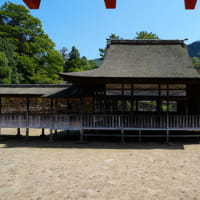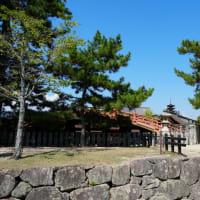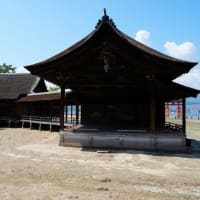The following is from Masayuki Takayama's Serialized column that brought this week's Weekly Shincho to a successful conclusion.
This article also proves that he is the one and only journalist in the post-war world.
The notes in the *~* are mine.
Are they righteous?
GHQ dismantled the Ministry of the Interior, which was responsible for security and epidemic prevention, and replaced it with the National Police Agency and the Ministry of Health and Welfare.
The Ministry of Health and Welfare, which had lost its power, was called Kasumigaseki older people's home and was the site of the Wuhan Corona In scare; the work was worthy of the name.
GHQ dismantled another government office.
The Justice Department.
This office combined the courts and the Public Prosecutor's Office into a single entity.
It was strange, given the separation of powers, but Japan had a good old tradition.
In the Edo Magistrate's Office, the yoriki judged cases as prosecutor and judge, and sometimes as a lawyer.
He ruled on cases to the satisfaction of most of the judges.
Carl Peter Thunberg, a botanist from Sweden, was impressed by this decision.
But GHQ was too stupid to know Thunberg.
The Justice Department was dismantled, the Supreme Court took over the judiciary, and the prosecutors were placed under the Ministry of Justice.
But even after the war, the two sides continued to exchange judges and prosecutors, and they got along well with each other.
If the prosecutor prosecuted a case, the judge did not acquit him outright.
It has become so popular that 80% of the prosecutors' sentences are now the price of sentencing.
But unfortunately, after the war, the prosecutors forgot the disposition of the feudal era police rank and wielded their power as they pleased.
In 1950, after the Zaitagawa murder of a black-marketeer, prosecutors arrested a neighborhood delinquent and indicted him based on his confession and the blood on his pants.
The judge followed the prosecution's lead and sentenced him to death.
However, a 34-year-old retrial revealed that the prosecution fabricated the confession and the blood of his pants.
At the same time, blood evidence showed that Furuhata Tanemoto, of the University of Tokyo's forensic science department, was suspected of embracing him.
The other two men who had been sentenced to death in Furuhata's testimony were falsely accused in the retrial.
The Lockheed case, in which Kakuei was held in contempt, was also an unforgivable miscarriage of justice that resulted from the cozy relationship between the prosecutor and the judge.
It all started when a U.S. Senate subcommittee produced a peanut receipt for Lockheed.
But since the source of the receipts is unknown, they can't be used as evidence.
However, the district attorney's office created a scenario in which Lockheed presented Kakuei with 500 million yen to force All Nippon Airways to buy a Lockheed Airbus. They arrested those involved and forced them to confess.
Tokuji Wakasa of the All Nippon Airways said, 'I was forced to stand against a wall for half a day' to describe the arrogant of these uppity legal rebels.
But there was little profit to be made from selling the Airbus.
In contrast, Lockheed's P3C deal for the P3C anti-submarine patrol aircraft is worth a trillion yen.
When the newspapers became suspicious of the District Attorney's Office's plot, deputy chief Yusuke Yoshinaga threatened to ban newspapers with "P3C" written on their pages.
The special prosecutors asked the Supreme Court to compel Lockheed executives to testify to the special investigation's plot as a critical factor in Kakuei's arrest.
But testimony without cross-examination is not evidence.
The special prosecutors forced the Supreme Court to bend the rules there, and the Supreme Court issued a declaration that "no matter how many lies Lockheed executives tell, they are evidence."
It was an illegal bid-rigging scheme by the Supreme Court and prosecutors that will live on in the future.
When a reporter confronted about the unfairness of allowing testimony without cross-examination to be used as evidence, Yoshinaga said, "The American people have been told in the Bible that they are not allowed to testify in the United States. I swear to you, I will testify. It will not lie, American," he replied with a straight face.
It was Hotta Tsutomu or Kunihiro Matsuo who made a name for themselves by arresting Kakuei, even to the point of deception.
Hotta later became the chief cabinet secretary of the Ministry of Justice, and Matsuo worked his way up to become the chief prosecutor.
The Osaka District Public Prosecutor's Office also used such a plot-driven approach to arrest Atsuko Muraki of the Health Ministry.
They tampered with floppy disks that did not fit the plot, as a matter of course.
When it was discovered, both the special investigator and the deputy director were arrested.
Norisada Mamoru didn't fabricate the case, but instead, he stalked a pachinko parlor to pay for his entertainment in Ginza, traveling at public expense with a hostess and impregnating her.
The prosecutors kept quiet, but the 'truth of the rumor' exposed it.
Prosecutors have been misbehaving whether they did their jobs or not.
The appointment of Hiromu Kurokawa to the Tokyo High Public Prosecutor's Office to extend the retirement age was much opposed by former prosecutors of the Lockheed Corporation case, including Hotta.
The Asahi Shimbun, which encouraged them to dance, wrote, 'This will lead to a denial of the separation of powers.'
*We have been watching the news reports aired on NHK, which is in sympathy with the Asahi Shimbun, without knowing the intentions of the Asahi Shimbun or the intentions of those who control the NHK, who are in solidarity with the Asahi Shimbun, making them look like righteous messengers*.
I don't get it.
It's only natural for the executive branch to intervene in prosecutorial appointments under the administrative branch jurisdiction.
I didn't know the prosecutors were not only arrogant and arrogant but also ignorant to this extent.
They have smeared the Japanese judiciary with so much mud; it's funny enough to see them acting like they're the righteous ones.
最新の画像[もっと見る]
-
 These are the top 10 real-time search numbers as of 23:00 on 2024/9/17.
3時間前
These are the top 10 real-time search numbers as of 23:00 on 2024/9/17.
3時間前
-
 Repost!China's prosperity has blossomed on Japan's stupidity. We've had enough of China
8時間前
Repost!China's prosperity has blossomed on Japan's stupidity. We've had enough of China
8時間前
-
 Sądzę, że chodzi o globalistów, tak zwane głębokie państwo, którzy spotykają się w Davos.
10時間前
Sądzę, że chodzi o globalistów, tak zwane głębokie państwo, którzy spotykają się w Davos.
10時間前
-
 Luulen, että se tarkoittaa globalisteja, niin kutsuttua syvää valtiota, jotka kokoontuvat Davosiin.
10時間前
Luulen, että se tarkoittaa globalisteja, niin kutsuttua syvää valtiota, jotka kokoontuvat Davosiin.
10時間前
-
 Jeg antar at det mener globalistene, den såkalte deep state, som samles i Davos.
10時間前
Jeg antar at det mener globalistene, den såkalte deep state, som samles i Davos.
10時間前
-
 Jag antar att det menar globalisterna, den så kallade djupa staten, som samlas i Davos.
10時間前
Jag antar att det menar globalisterna, den så kallade djupa staten, som samlas i Davos.
10時間前
-
 我想這指的是聚集在達沃斯的全球主義者,也就是所謂的深層國家。
10時間前
我想這指的是聚集在達沃斯的全球主義者,也就是所謂的深層國家。
10時間前
-
 我猜这指的是聚集在达沃斯的全球主义者,即所谓的深层国家。
10時間前
我猜这指的是聚集在达沃斯的全球主义者,即所谓的深层国家。
10時間前
-
 다보스에 모이는 소위 딥 스테이트, 즉 글로벌리스트들을 뜻하는 거겠죠.
10時間前
다보스에 모이는 소위 딥 스테이트, 즉 글로벌리스트들을 뜻하는 거겠죠.
10時間前
-
 Penso que significa os globalistas, o chamado estado profundo, que se reúnem em Davos.
10時間前
Penso que significa os globalistas, o chamado estado profundo, que se reúnem em Davos.
10時間前









